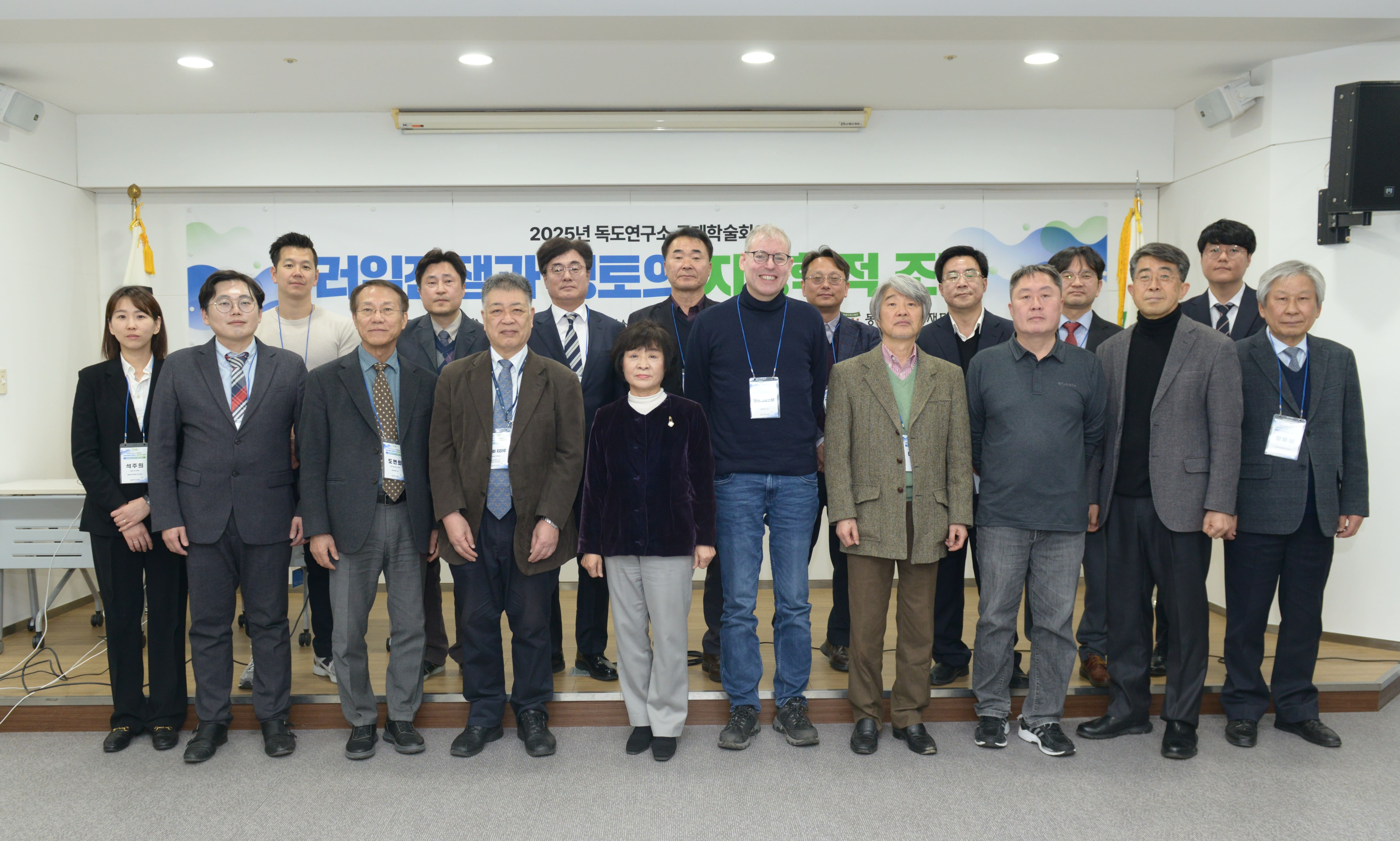Title Northeast Asian History Foundation Dokdo Institute International Academic Conference "The Russo-Japanese War and the Geopolitical Perspective on Territory" Held
- Date2025.02.25
- Hit462

The Northeast Asian History Foundation held the 2025 Dokdo Institute International Academic Conference on Tuesday, February 25, at 1:00 PM in the foundation's main conference room under the theme "The Russo-Japanese War and the Geopolitical Perspective on Territory."
The Russo-Japanese War, which broke out on February 8, 1904, and continued until September 1905, was a conflict between Russia and Japan over control of Korea. The war ended with the signing of the Treaty of Portsmouth, mediated by U.S. President Theodore Roosevelt. This academic conference aimed to analyze the Russo-Japanese War through the lens of geopolitical theory and examine the changes in the Northeast Asian order surrounding the Korean Peninsula. Additionally, discussions were held on how historical geopolitics have evolved into modern Eurasian geopolitics.
The conference was divided into three sessions:
- "The Russo-Japanese War and Classical Geopolitics"
- "Geopolitical Discourse on Eurasia after the Russo-Japanese War"
- Comprehensive Discussion (Designated Debate)
The key topics covered in the conference were as follows:
- First, using geopolitical theory, the conference analyzed the impact of the conflict between maritime and continental powers on the Russo-Japanese War and the subsequent formation of the international order.
- Second, it examined how Japan geopolitically interpreted its relations with the United States, China, and the Soviet Union after its defeat in 1945, and what diplomatic strategies it employed during the San Francisco Peace Treaty negotiations and the normalization of diplomatic relations.
- Third, the geopolitical changes following Russia's invasion of Ukraine were analyzed, comparing the strategies of the United States and Germany after the Cold War.
- Fourth, discussions covered Putin’s Eurasian strategy and the concept of Neo-Eurasianism, as well as Russia’s foreign policy direction after the Ukraine war.
President Park Jihang of the foundation stated, "This international academic conference serves as an important opportunity to explore the future direction of the Northeast Asian order by providing a multifaceted analysis of the Russo-Japanese War and changes in Eurasian geopolitics."
